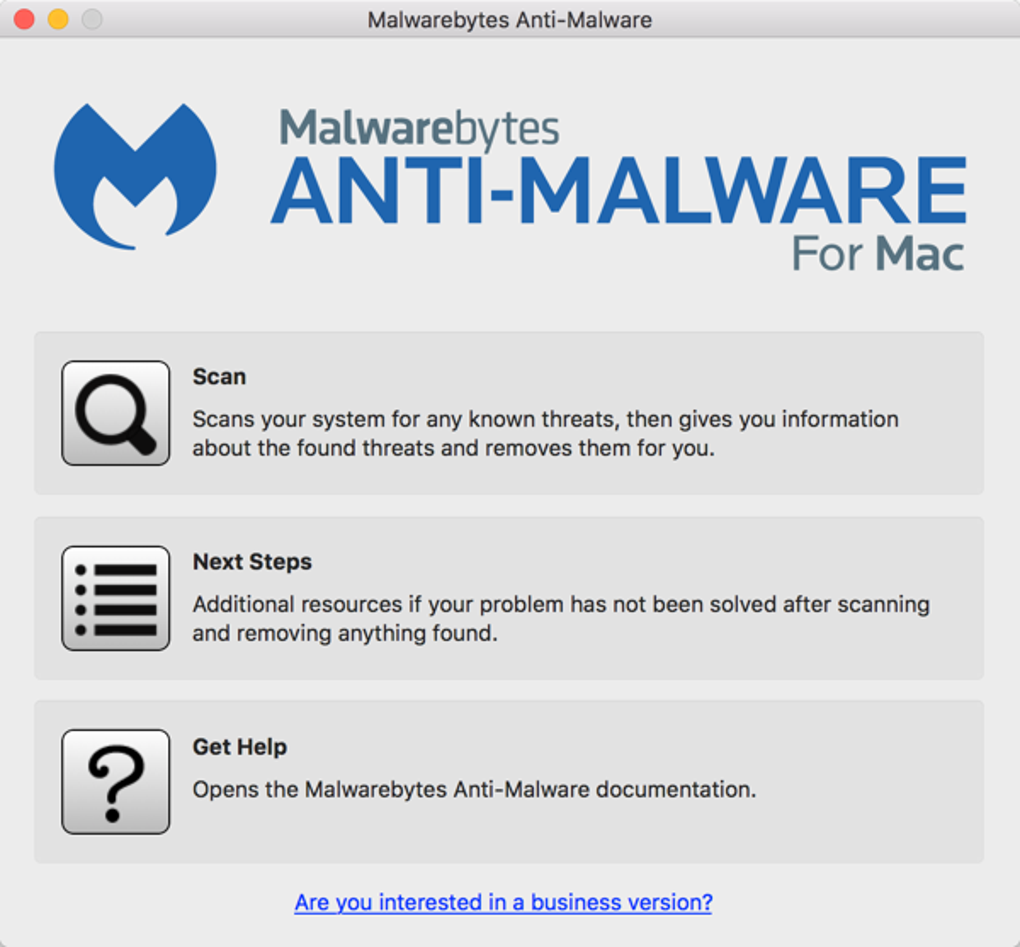
- #Malwarebytes anti malware free download for mac software#
- #Malwarebytes anti malware free download for mac code#
- #Malwarebytes anti malware free download for mac series#
- #Malwarebytes anti malware free download for mac mac#
- #Malwarebytes anti malware free download for mac windows#
#Malwarebytes anti malware free download for mac mac#
In fact, Malwarebytes saw more Mac malware in 2017 than in any previous year.

In the last few years, a growing number of active threats have targeted the Mac operating system. “Malwarebytes saw more Mac malware in 2017 than in any previous year.” Despite this, there are still tech pundits who recklessly advise against taking even basic security precautions, such as installing a cybersecurity program. Another thing protecting Macs is the fact that they’re less popular than PCs, but that doesn’t stop some hackers from targeting Macs. By design, the Mac operating system is more secure against the threat of viruses and malware, but there are still plenty of ways for malware to find its way in. While it’s true Macs are more secure than PCs, they’re still vulnerable to viruses, and they always have been.
#Malwarebytes anti malware free download for mac series#
Apple itself even reassured its customers for years that Macs “don’t get viruses.” It even said so in a series of commercials that first aired in 2006.

#Malwarebytes anti malware free download for mac windows#
Historically, Mac fans have touted their platform as immune to the kinds of data attacks and other hostile intrusions that plague the Windows world.
#Malwarebytes anti malware free download for mac software#
For that reason, most anti-virus/malware packages avoid scanning such databases altogether.If you’re a Mac user, you get mixed messages about whether viruses and other malicious software pose a bona fide threat. The problem with email clients other than Apple Mail is that most of them rely on monolithic databases which cannot be easily broken up resulting in having the entire database moved to quarantine for a single malware detection and losing all email in that account. At the time I chose to mass delete these folders it was because of limited space in my iCloud account which had caused my email accounts to take up twice the space needed for the email messages alone. Items found in the Attachment folders are the result of either displaying the attachment within the email being read or extracting it/double-clicking it. Admittedly that is different from any attempt to remove a MIME section from the original email message that is the source of such attachments. Just an observation on my part, but I have removed e-mail attachments using both a competitive anti-malware product as well as routinely deleting all the "Attachments" folder from the Apple Mail database without ever causing an issue. The only advise here is to make sure that only one of them is configured to have real-time/on-access capability as that can slow things down as they fight over who gets to scan a new/modified file first. I have no idea what your Intego problem might be as I haven't used it for a very long time now, but I do have half a dozen or so other anti-malware/virus software installed on my Mac for testing purposes without issues. Malwarebytes is able to maintain it's speed advantage over other products by removing the ability to catch malware that are extinct and no longer a threat for a variety of reasons. I suspect there are a few utilities out there that still include the ability to catch ancient macOS viruses, but that really shouldn't be a consideration. So from a purely technical standpoint, Malwarebytes does not have an antivirus capability at this time since there are no known macOS viri, but should one show up some day I'm confident that it would be added rapidly.
#Malwarebytes anti malware free download for mac code#
Also, the technical definition of a virus is "a piece of code that is capable of copying itself in order to do damage to your computer, including corrupting your system or destroying data." There haven't been any macOS viruses for decades now, but many utilities have stuck with the "antivirus" nomenclature rather than switch to a more descriptive anti-malware name. Technically, all viruses are malware and malware is an umbrella term that stands for a variety of malicious software, including Trojans, spyware, worms, adware, ransomware and viruses.

Translated from Italian with (free version) In conclusion: for me no, there is no need for an additional product. For me it's all to prove because it's been years since I've run this risk: surely my method of using the MAC (and sometimes the PC) paying attention to the web sites visited gives a big hand in being protected. The other products say they also detect non-macOS threats. With this configuration I feel more than protected. Having said that, as long as you are not subject to particular obligations in the work area, Malwarebytes is more than sufficient (I added 1blocker, always on 's advice, and I tested Malwarebytes Browser Guard, available for all major browsers - I don't currently use the one for Safari because, at least on Big Sur and Mac M1, it was giving problems - but I will come back to use it as soon as it is fixed). (This concept has been repeated several times by here on the forum and not only) As a matter of business philosophy, Malwarebytes products do not detect threats related to other operating systems.


 0 kommentar(er)
0 kommentar(er)
